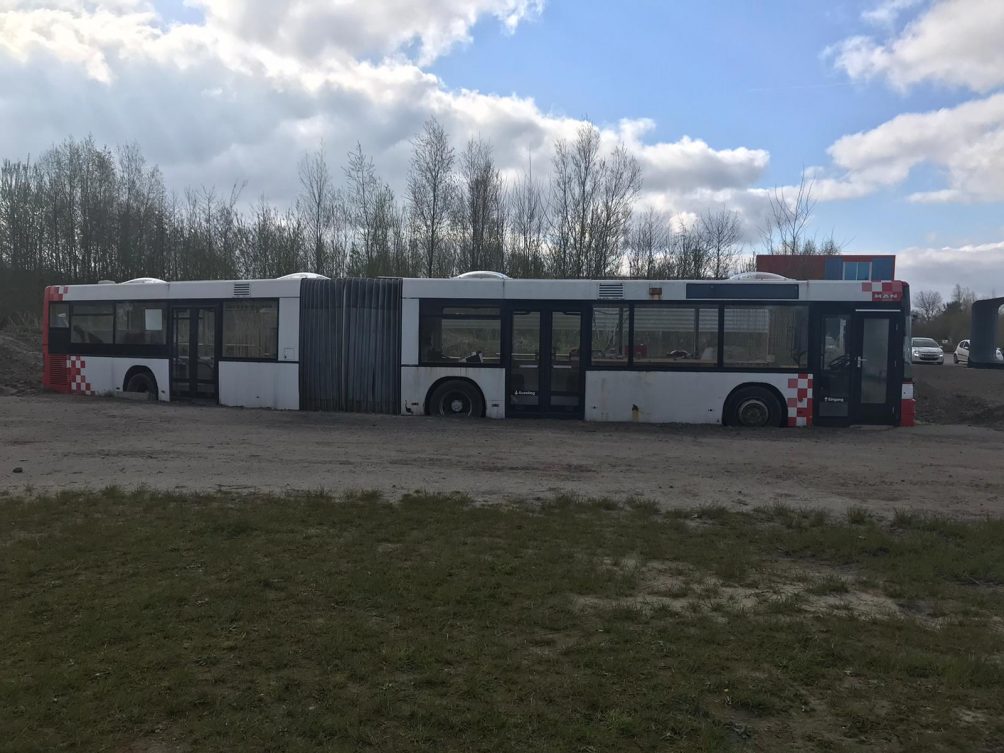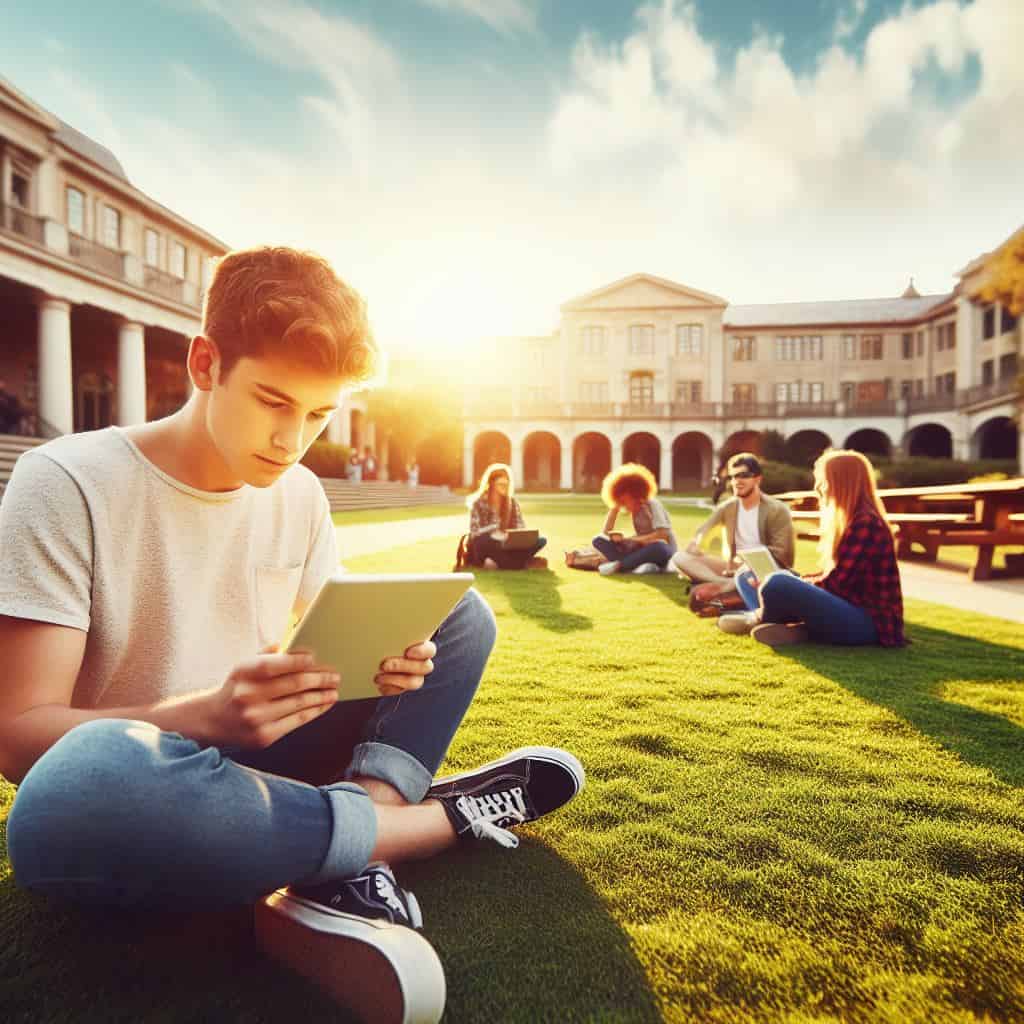
The Suikerterrein (a former sugar refinery) in the Dutch city of Groningen is a breeding ground for creative projects and collaborations. Even the education sector is pioneering there by using old sea containers and decommissioned shuttle buses. Sander Kalsbeek and Lammert Postma, education managers at Alfa-college, take you on a tour of the site.
Until 2030, part of the former factory site will be used for temporary initiatives that involve creative businesses, sustainable companies and diverse events. Alfa-college is using the area to innovate education. Together with the Terra MBO vocational training school and the Noorderpoort regional education center, work is being done on biobased, food, health and energy projects.
Students get their hands dirty and forge collaborations with each other that aren’t immediately obvious. “The Suikerterrein is very suited to that,” says Kalsbeek. For example, Construction and Civil Engineering students are collaborating to construct an easy-to-build and cost-effective Tiny House. “Together, the students are enabling that these kinds of Tiny Houses can be used in developing countries.”
A discarded shuttle bus and an old shipping container
Kalsbeek and Postma show how the site is being used by the education sector. There is much more to marvel at besides the Tiny House. All kinds of projects, experiments and large and small buildings can be seen while riding past on a bicycle. One of the objects on the grounds immediately stands out: A discarded shuttle bus. “We bought this bus so that lessons can be given in it,” says Kalsbeek. This certainly comes in handy, “because whenever it rains, other educational activities must also be able to take place.” Fashion, furniture and interior design students can all use it.

A bit further down the road stands an old shipping container with a roof full of green plants and a wall where a traditional loam layer has been applied. Students are working with the company GrunnDak on this. “This is how students learn to handle circular materials,” says Postma. Why is there grass and moss on the roof? “That has an insulating function. It retains water. Students learn more about this by working with the materials themselves.”

Fashion students and sustainability
A group of fashion students from Alfa-college are also walking around the grounds. Naomi, Patricia and Danielle are all busy shaping their clothing project. “We came here to have a photoshoot,” says Naomi. “We’ve made a special kind of blouse from sustainable materials. So, today we’re going to photograph the end result,” Patricia adds.
According to Postma, the grounds naturally spark creative projects. “Ideas are born that you couldn’t have thought of in a ‘normal’ educational setting. They are thought up on the spot on the grounds. Teachers also walk around and chat with each other. A ball starts rolling and then the students get involved. It can be that simple.”
Postma and Kalsbeek are all for it: More creative projects should take place outdoors. “It can sometimes be pretty scary to take a pioneering approach in education like this. Especially in the Netherlands, where we have a culture of balance and checks,” says Postma. Yet so many wonderful things have already been created. I think we just need to create more outdoor workshops.”
Helping with residential construction
Over time, the Suikerterrein will be readied for housing construction. Alfa-college hopes to be a part of that as well. “I notice that the Province and municipality are also keen for us to play a role,” says Postma. “Students can get involved in all kinds of different ways. Consider, for example, infrastructure, construction and the energy transition, but they can also help make the area greener. Groundwater must be kept at the right level and something has to be done with the rainwater too.”
However, those are long-term plans. For the time being, the challenge for Alfa-college is mainly in sharing all the knowledge that is gained from the Suikerterrein. “How do you make sure that we, as a complete organization, can learn from what is happening on the grounds?” wonders Kalsbeek. “Of course, we can’t send all the students to the grounds. It’s simply not big enough for that. We still have to figure out how we can best do that. All students ought to be able to benefit from the knowledge that is gained there.”
Also read:
Port of Lauwersoog on track to go green with ‘completely independent hydrogen supply chain’
The Groningen region is experimenting with hydrogen. ‘We want to scale up’







